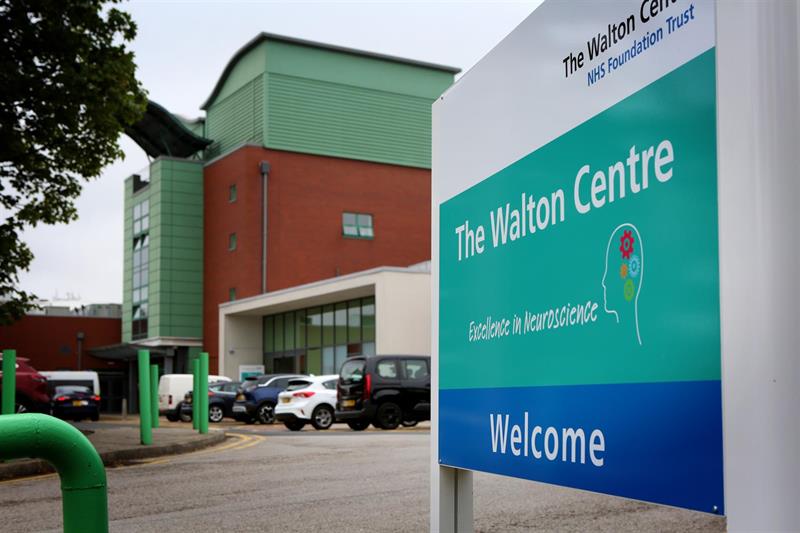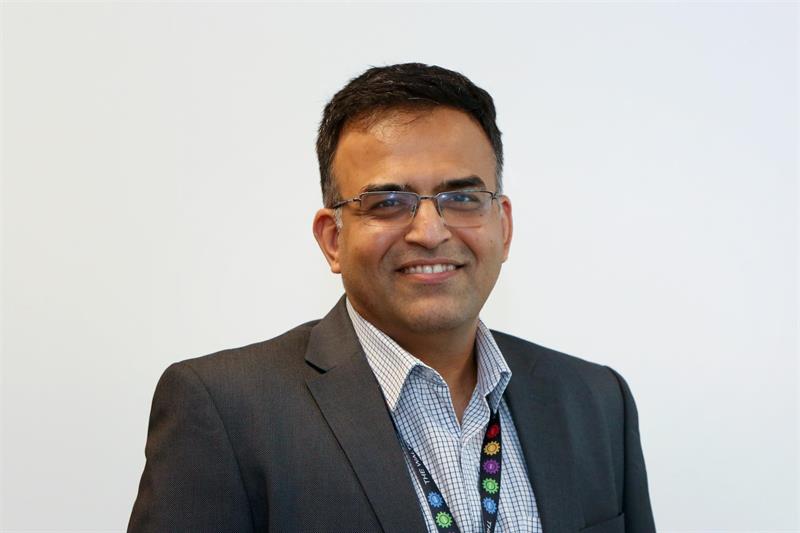Surgical, Medical, Acute Response Team (SMART)
Service contact information
Service detail
What is SMART?
SMART manage acute and deteriorating patients across The Walton Centre. It is a model of care which ensures ward staff have access to clinical advice and interventions as soon as concerns are identified with a patient. SMART also encompasses a critical care outreach service, a line service and is fully supported by medical staff.
Who are the SMART members?
SMART comprises of Advanced Outreach Nurse Practitioners; Outreach Sisters, plus a Resident Doctor, Core Medical Trainee or Core Surgical Trainee. Daily supervision is undertaken by the first on-call Neurosurgical Registrar and Neurology Registrar, both of whom are overseen by their clinical director.
What do SMART do?
SMART are a 24/7 team who :-
- Attend where there are concerns that a patient is deteriorating, showing signs of an acute clinical episode or NEWS >5. SMART will clinically use an ABCDE approach to clinically assess the patient. SMART members are highly clinically trained and skilled individuals.
- Form part of the resuscitation team and have advanced life support qualifications.
- Are responsible for the initial assessment and triage of emergency admissions into the wards across The Walton Centre. On arrival, the ward will notify the SMART Coordinator so that the patient can be assessed, examined, clerked and initial investigations ordered prior to Registrar review. This will ensure that a management plan is put in place and recorded in the shortest possible time, before the patient is handed over to their host Consultant team.
- Work closely with the Physiotherapists and Speech and Language Therapists by undertaking a daily tracheostomy round. All patients in a ward setting with a tracheostomy will be reviewed every morning by this multidisciplinary team.
- Insert, review and audit long term venous access. These are PICC lines (percutaneous inserted central catheter) and midlines.
- Work closely with the Advanced Nurse Practitioners utilising their specialist expertise, and with the medical teams to ensure effective communication occurs.
- Involved in teaching for sepsis, basic life support, deteriorating patient workshop and tracheostomy workshop. SMART are always available for advice and support and regularly provide education.
- Out-of-hours and to ensure safe hospital at night services, they hold the bronze in command and bed managers bleep.
- Out-of-hours, SMART will also be involved in the thrombectomy service.
- Review all ITU/HDU discharges before the patient is discharged to the wards. The team then continue to review these patients for a minimum of 24 hours and provide a follow-up service.
- Undertake research and audits to improve patient safety and care through service improvements. IE, sepsis trolleys, emergency seizure bags, Acute Kidney Injury (AKI).
SMART is in place to maximise patient safety and ensure that whenever it is required patients receive responsive, high quality care. The role of SMART is ever evolving in response to patient needs and the above list outlines an overview of the team’s duties but is not exhaustive.
Call for Concern
The safety of our patients is a highest priority at The Walton Centre. The Surgical and Medical Acute Response Team, known as SMART provide a 24-hour service to support our most vulnerable patients, as well as providing a critical care outreach service. We provide support and care to deteriorating patients.
We are aware that family and friends know their loved one best and evidence shows that they may identify notable changes in patients earlier than noted by the clinical team.
Early recognition results in better patient outcomes and we are aware that you as the patient, family, friends, or carers may recognise these early signs and we need your help to ensure early intervention is taken as soon as possible.
'Call 4 Concern'© is a patient safety initiative, designed to enable patients, families or carers to call for immediate help and advice if they feel concerned that the healthcare team has not recognised a change in their or their loved one's condition. This Patient and Family Centred Care approach will help us to improve all dimensions of quality, including clinical effectiveness. It will improve the experience of our patients and families in relation to the care and treatment they receive in our hospital.
Call 4 Concern is a patient safety initiative only. To report concerns regarding for example, food, nursing care, discharge issues, parking or any other general issues please speak to your nurse or the Ward Manager in the first instance. If you are not satisfied, then ask to speak to the Matron.
How to raise a Call 4 Concern?
Step 1
If you are receiving inpatient care or are a family member, friend or carer of an inpatient please discuss your concerns regarding the clinical condition with your nurse, Ward Manager, or Matron. If this is not resolved, then escalate further.
Step 2
If your concerns have not been resolved and there is a deterioration in yours or the patient's condition or you feel there is immediate danger, then please call SMART. Call switchboard 0151 525 3611 and ask to bleep SMART on 2216 or call the Mobile 07977 842 718 directly.
What next?
We aim to answer all calls as soon as possible but please be aware that the team may be dealing with an emergency. You will need to inform us of the patient’s name, their condition and how this has been escalated. If your call is not answered immediately, please leave a message and your call will
be returned.
Getting here
The Walton Centre - Main Hospital Building

This building hosts many of our in-patient services, including wards and theatres, and some outpatients services.
Address
Lower Lane, Liverpool, L9 7LJ
Directions and map
- View The Walton Centre - Main Hospital Building on a map
- Get directions to The Walton Centre - Main Hospital Building
The Walton Centre NHS Foundation Trust is not responsible for third-party sites or content.
Surgical, Medical, Acute Response Team (SMART) Consultants

Dr Sandeep Lakhani
Dr Lakhani was the Clinical Director for Neuroanaesthesia and Critical Care from 2012 to 2019 and is currently the Divisional Clinical Director, Neurosurgical division.
Page last updated: 22 June 2021
64